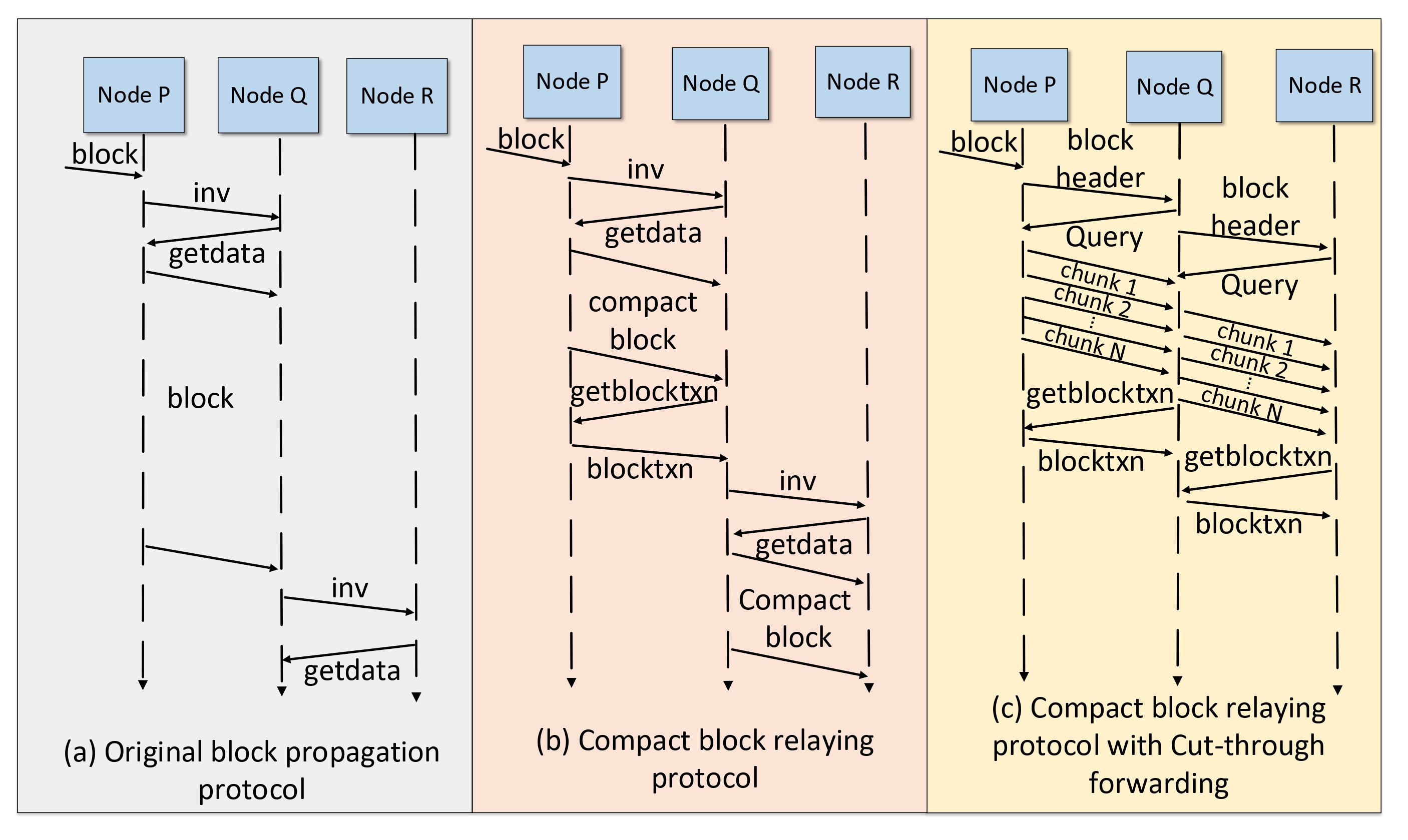Speeding up Block Propagation in Bitcoin Network: Uncoded and Coded Designs
Overview


We design and validate new block propagation protocols for the peer-to-peer (P2P) network of the Bitcoin blockchain. Despite its strong protection for security and privacy, the current Bitcoin blockchain can only support a low number of transactions per second (TPS). In this work, we redesign the current Bitcoin’s networking protocol to increase TPS without changing vital components in its consensus-building protocol. In particular, we improve the compact-block relaying protocol to enable the propagation of blocks containing a massive number of transactions without inducing extra propagation latencies. Our improvements consist of:
- replacing the existing store-and-forward compact-block relaying scheme with a cut-through compact-block relaying scheme;
- exploiting rateless erasure codes for P2P networks to increase block-propagation efficiency.
Since our protocols only need to rework the current Bitcoin’s networking protocol and does not modify the data structures and crypto-functional components, they can be seamlessly incorporated into the existing Bitcoin blockchain. To validate our designs, we perform analysis on our protocols and implement a Bitcoin network simulator on NS3 to run different block propagation protocols. The analysis and experimental results confirm that our new block propagation protocols could increase the TPS of the Bitcoin blockchain by 100x without compromising security and consensus-building.


Publications
L. Zhang, T. Wang, S. C. Liew
Speeding up Block Propagation in Bitcoin Network: A Cut-through Relaying Scheme
The 14th IEEE International Conference on Cyber, Physical and Social Computing (IEEE CPSCom-2021), Dec. 2021. (Won best student paper award)
